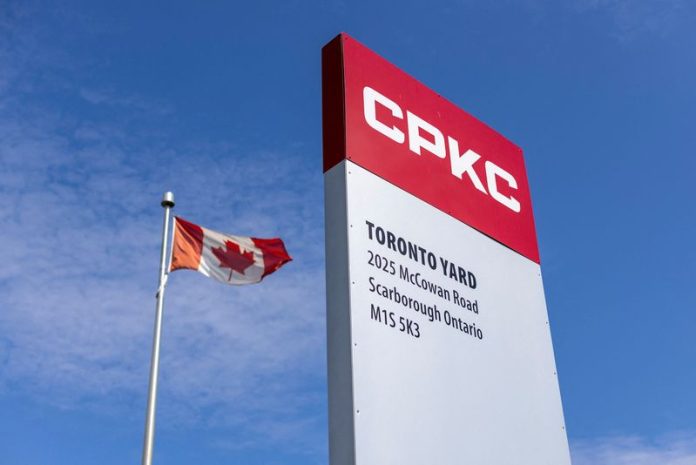By Sabrina Valle
NEW YORK (Reuters) -Two major rail operators have taken themselves out of the merger game that has gripped the industry for the past month, reshaping the competitive landscape and raising the regulatory stakes for Union Pacific’s proposed $85 billion tie-up with Norfolk Southern .
Canadian Pacific Kansas City joined Warren Buffett’s BNSF Railway BNSF Railway on Tuesday in publicly rejecting participation in any near-term rail industry consolidation.
The move makes it less likely that a proposed $85 billion merger last month between top U.S. railroad operator Union Pacific and Norfolk would lead to more corporate marriages.
The merger would create the first east-west U.S. railroad operator, reshaping the movement of goods ranging from grains to autos across the country. The news raised concerns about market concentration and prompted heated speculation that rivals would need to join forces to remain competitive.
REGIONAL DUOPOLY
The U.S. rail industry has already undergone significant consolidation in recent decades, shrinking from dozens of carriers to six major class I railroads.
The U.S. freight rail industry is dominated by four top U.S.-based carriers – two in the west and two in the east. That means shippers have only two carrier options considering the point of origin.
Top railroad operator Union Pacific, which primarily operates in the west, proposed to join Norfolk, which has a strong foothold in the east. Initially, this prompted speculation that the other two U.S.-based railroad operators – BNSF Railway in the west and CSX in the east – could merge to stay competitive against a coast-to-coast giant.
That game has changed in the past days. First, Buffett-backed BNSF dropped out.
Two large Canadian railroad companies also operate in the United States. Canadian Pacific, the only one with a tri-national network, would be the next viable candidate to merge with CSX. But Tuesday’s announcement left CSX without a viable partner for a large merger.
HIGHER REGULATORY RISKS
The reduced chances of a consolidation wave raises the regulatory risks for Union Pacific’s attempt to buy Norfolk and go coast-to-coast.
If this was the only deal under review by the U.S. Surface Transportation Board, regulators would have greater concerns because a single large operator could muscle out smaller regional operators.
Expectations were different last month. When Union Pacific and Norfolk Southern disclosed they were in talks last month, board officials were gearing up to review two megamerger proposals, a person close to the discussions previously told Reuters.

